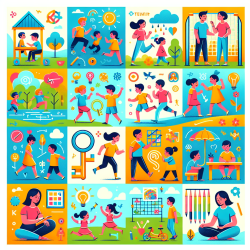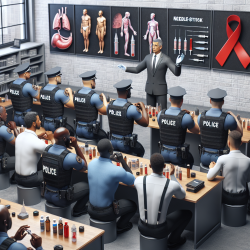Children sometimes argue, are aggressive, or act angry or defiant around adults. When these disruptive behaviors are uncommon for the child’s age, persist over time, or are severe, a behavior disorder may be diagnosed. Because disruptive behavior disorders involve acting out and showing unwanted behavior towards others, they are sometimes called externalizing disorders.
Oppositional Defiant Disorder
When children act out persistently causing serious problems at home, in school, or with peers, they may be diagnosed with Oppositional Defiant Disorder (ODD). ODD usually starts before 8 years of age, but no later than by about 12 years of age. Children with ODD are more likely to act oppositional or defiant around people they know well, such as family members, a regular care provider, or a teacher. Children with ODD show these behaviors more often than other children their age.
Examples of ODD behaviors include:
- Often being angry or losing one’s temper
- Often arguing with adults or refusing to comply with adults’ rules or requests
- Often resentful or spiteful
- Deliberately annoying others or becoming annoyed with others
- Often blaming other people for one’s own mistakes or misbehavior
Learn more about ODD
Conduct Disorder
Conduct Disorder (CD) is diagnosed when children show an ongoing pattern of aggression toward others, and serious violations of rules and social norms at home, in school, and with peers. These rule violations may involve breaking the law and result in arrest. Children with CD are more likely to get injured and may have difficulties getting along with peers.
Examples of CD behaviors include:
- Breaking serious rules, such as running away, staying out at night when told not to, or skipping school
- Being aggressive in a way that causes harm, such as bullying, fighting, or being cruel to animals
- Lying, stealing, or damaging other people’s property on purpose
Learn more about CD
Treatment for Disruptive Behavior Disorders
Starting treatment early is important. Treatment is most effective if it fits the needs of the specific child and family. The first step to treatment is to talk with a healthcare provider. A comprehensive evaluation by a mental health professional may be needed to get the right diagnosis. Some signs of behavior problems, such as not following rules in school, could be related to learning problems which may need additional intervention. For younger children, the treatment with the strongest evidence is behavior therapy training for parents, where a therapist helps the parent learn effective ways to strengthen the parent-child relationship and respond to the child’s behavior. For school-age children and teens, an often-used effective treatment is a combination of training and therapy that includes the child, the family, and the school.
Get Help Finding Treatment
Here are tools to find a healthcare provider familiar with treatment options:
- Psychologist Locator, a service of the American Psychological Association (APA) Practice Organization.
- Child and Adolescent Psychiatrist Finder, a research tool by the American Academy of Child and Adolescent Psychiatry (AACAP).
- Find a Cognitive Behavioral Therapist, a search tool by the Association for Behavioral and Cognitive Therapies.
- If you need help finding treatment facilities, visit FindTreatment.gov.
Managing Symptoms: Staying Healthy
Being healthy is important for all children and can be especially important for children with behavior or conduct problems. In addition to behavioral therapy and medication, practicing certain healthy lifestyle behaviors may reduce challenging and disruptive behaviors your child might experience. Here are some healthy behaviors that may help:
- Engaging in regular physical activity, including aerobic and vigorous exercise
- Eating a healthful diet centered on fruits, vegetables, whole grains, legumes (for example, beans, peas, and lentils), lean protein sources, and nuts and seeds
- Getting the recommended amount of sleep each night based on age
- Strengthening relationships with family members
Prevention of Disruptive Behavior Disorders
It is not known exactly why some children develop disruptive behavior disorders. Many factors may play a role, including biological and social factors. It is known that children are at greater risk when they are exposed to other types of violence and criminal behavior, when they experience maltreatment or harsh or inconsistent parenting, or when their parents have mental health conditions like substance use disorders, depression, or attention-deficit/hyperactivity disorder (ADHD). The quality of early childhood care also can impact whether a child develops behavior problems.
For more information, please follow this link.










